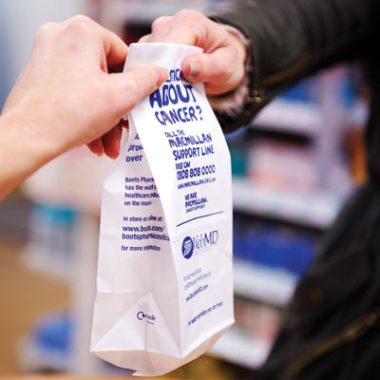NHS England issues guidance to curb over-the-counter prescribing

NHS England has called on CCGs to curb prescriptions for over-the-counter medicines for conditions such as constipation, diarrhoea and athlete’s foot.
The new guidance – which follows the consultation launched last year – says putting a halt to the routine prescribing of these medicines will save almost £100m to be reinvested in front-line services.
In response to initial proposals of a blanket ban, the BMA had warned GPs would be in breach of their contract if they refused to issue a prescription for treatment that they had recommended.
The final recommendations cover 35 minor, short-term conditions, including dandruff, indigestion, mouth ulcers, travel sickness and coughs and colds.
But there are exemptions including for patients where the clinician believes they will struggle to self-manage because of medical, mental health problems or ‘significant social vulnerability’.
The guidance also does not apply to long-term or more complex conditions who will continue to get their usual prescriptions.
It does point out that people who receive free prescriptions will not automatically be excluded from the new guidance.
NHS England pointed out that annually the NHS spends £4.5m on dandruff shampoos, £7.5m on indigestion and heartburn, and £5.5m on mouth ulcers
Chief executive Simon Stevens said: ‘The NHS is probably the most efficient health service in the world, but we’re determined to keep pushing further.
‘Every pound we save from cutting waste is another pound we can then invest in better A&E care, new cancer treatments and much better mental health services.’
Some CCGs had already cracked down on prescribing of over-the-counter medicines.
Dr Andrew Green, BMA GP committee clinical and prescribing lead, said: ‘It is already a basic part of a GP’s job to help patients care for their own minor illnesses, and to explain the availability and proper use of over-the-counter preparations. This is useful guidance regarding those situations where advice about self-care may be all that a patient needs.
‘However as there has been no change to the regulations that govern GP prescribing, this guidance cannot be used by CCGs to ban all such treatments. GPs must continue to treat patients according to their individual circumstances and needs, and that includes issuing prescriptions where there are reasons why self-care is inappropriate. This guidance does make it clear that such requirements continue to apply in individual situations.’
NHS England’s consultation response said: ‘A definitive list of medications that are not authorised would be imperative to support GPs in implementing what is being proposed. A “blacklist” of medications would support GPs in respect of their contractual obligations and avoid challenges to their decisions from patients.
‘NHS England and NHS Clinical Commissioners should consult with the Advisory Committee for Borderline Substances in determining exactly how the prescribing restrictions might apply in practice.’
Pulse has asked NHS England whether such a consultation will go ahead.
But RCGP chair Professor Helen Stokes-Lampard welcomed the guidance as it stands.
She said that although the college had ‘always been supportive of plans to take safe, sensible measures’ to reduce prescribing costs, it had ‘concerns about blanket bans being imposed, and GPs losing their freedom to make decisions in the best interests of individual patients’.
She said: ‘We are very pleased that NHS England have listened to our concerns and that GPs will retain the ability to use our expert medical judgement and clinical skills to prescribe medicines that are also available to buy over the counter in certain circumstances. It is also welcome that limitations will not affect patients living with longer-term and more complex conditions.’
Dr Graham Jackson, co-chair of NHS Clinical Commissioners and the joint clinical working group, said: ‘On a daily basis, CCGs are forced to make difficult decisions that balance the needs of the individual against those of their entire local population.
‘We recognise that it may be difficult for some patients who have previously been prescribed these products, but it is right that we prioritise our spending on those that provide the best outcomes for patients.’
Conditions for which prescribing should be restricted
1. Probiotics
2. Vitamins and minerals
3. Acute Sore Throat
4. Infrequent Cold Sores of the lip.
5. Conjunctivitis
6. Coughs and colds and nasal congestion
7. Cradle Cap (Seborrhoeic dermatitis – infants)
8. Haemorrhoids
9. Infant Colic
10.Mild Cystitis
11.Mild Irritant Dermatitis
12.Dandruff
14.Dry Eyes/Sore (tired) Eyes
15.Earwax
16.Excessive sweating (Hyperhidrosis)
17.Head Lice
18.Indigestion and Heartburn
19.Infrequent Constipation
20.Infrequent Migraine
21.Insect bites and stings
22.Mild Acne
23.Mild Dry Skin
24.Sunburn
25.Sun Protection
26.Mild to Moderate Hay fever/Seasonal Rhinitis
27.Minor burns and scalds
28.Minor conditions associated with pain, discomfort and/fever. (e.g. aches and
sprains, headache, period pain, back pain)
29.Mouth ulcers
30.Nappy Rash
31.Oral Thrush
32.Prevention of dental caries
33.Ringworm/Athletes foot
34.Teething/Mild toothache
35.Threadworms
36.Travel Sickness
37.Warts and Verrucae
Source: NHS England board papers
Visit Pulse Reference for details on 140 symptoms, including easily searchable symptoms and categories, offering you a free platform to check symptoms and receive potential diagnoses during consultations.









